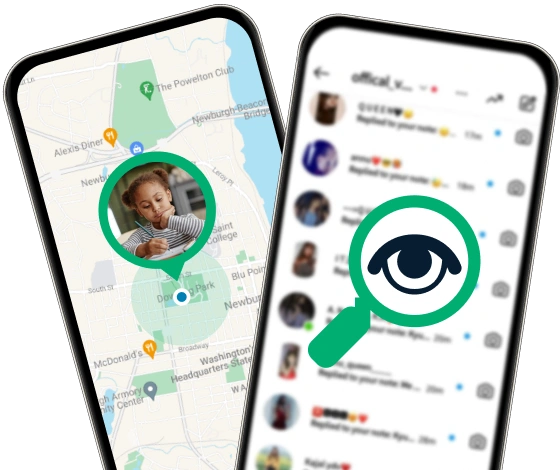In today’s hybrid work environment, the use of Microsoft Teams has exploded. Many employees wonder if their private chats and messages are really just that – private. They worry about who can see their conversations, especially when discussing sensitive information. It’s a valid concern that impacts both productivity and privacy in the workplace.
One important fact to consider is that organizations have the ability to access all chats between their accounts on Microsoft Teams. This raises questions about what exactly employers can monitor and how secure your messages are.
This blog aims to shed light on these concerns by explaining how admin access works within Microsoft Teams, what monitoring capabilities exist, and where privacy boundaries lie. Stay informed; it matters.
Can Employers Access Microsoft Teams Chat History?
Employers can indeed access chat history on Microsoft Teams. They have the capability to view chats between organization accounts, including one-on-one and group chats. This level of access helps managers monitor communications for compliance and security purposes. Employers can see messages in team channels and get details from the Teams’ usage reports.
Microsoft provides tools for this purpose, allowing admins to check all types of chats and meeting conversations. Concerns about privacy arise as some wonder if private messages remain confidential under this surveillance.
Despite these worries, regulations like GDPR ensure that data handling follows strict privacy rules, balancing oversight with individual rights.
How IT Administrators Can Monitor Messages in Microsoft Teams
IT administrators have full access to Microsoft Teams chats and the ability to decide whom to monitor. This boils down to ensuring safe communication and preventing confidential data exposuse. Let’s highlight in detail.
Enabling Communication Compliance
Companies can set up communication compliance in Microsoft Teams to monitor and examine messages. This ensures chats, including one-on-one, group discussions, and meeting conversations, follow company policies and legal requirements.
Admins use tools within Microsoft 365 to create policies that flag inappropriate or sensitive information shared in messages. These policies help identify potential risks like sharing private data or offensive language. Alerts notify administrators when content violates these rules so they can take appropriate action quickly. This feature helps companies maintain a safe and manageable communication environment across their teams.
Creating Monitoring Policy
Using Microsoft Teams tools, IT administrators may set up monitoring policies to keep an eye on employees’ messages. They decide what needs tracking, like specific words or sensitive information. This helps in ensuring that all communications follow the company’s guidelines.
They also choose which employees’ chats, emails, and files to monitor. This decision often depends on the employee’s role in the organization or the project they are working on. Through eDiscovery and compliance features, admins can search for specific terms across chats and documents.
Determining Whom to Monitor
To determine whom to monitor in Microsoft Teams, IT administrators can establish monitoring policies based on selected criteria such as user roles, departments, or specific teams. These policies enable organizations to target monitoring efforts effectively. Additionally, communication compliance settings allow administrators to identify individuals or groups whose messages require scrutiny.
Employers possess the capability to view their employees’ chat history within Microsoft Teams and can contact Microsoft support if necessary. Moreover, managers have access to a detailed account of all messages posted in team channels through the usage report feature.
What Data Can Microsoft Teams Access?
Microsoft Teams can access all communication data within the platform, including chat history, shared files, and meeting transcripts. Employers can view their employees’ chat history on Microsoft Teams, which includes one-on-one chats and group chats. Organizations can also monitor meetings, record them, access transcripts, and see detailed reports.
Additionally, concerns have been raised about whether Microsoft Teams admin can view all chat messages, including private chats. Data accessible by Microsoft Teams includes communication logs such as user activity reports and compliance records. Moreover, employers have the ability to request access to messages from Microsoft support if deemed necessary for business purposes or legal matters.
Users express concerns about privacy and whether deleted messages are still visible to employers or admins. This highlights discussions around the need for transparency regarding data accessibility and retention policies within Microsoft Teams.
Privacy and Security in Microsoft Teams
As mentioned, employers can access and monitor chats between organization accounts on Microsoft Teams, including one-on-one and group conversations. Concerns have been raised about the privacy of private chats, with users questioning if their managers have access to these messages. Users want assurance that their conversations remain private and secure within the platform.
Data retention policies need to align with privacy regulations to safeguard user information. It’s crucial for IT administrators to create monitoring policies while considering privacy matters carefully. Monitoring tools such as e-discovery capabilities must be used responsibly when dealing with sensitive employee communications in compliance with legal requirements.
Can Teams Calls and Meetings Be Monitored?
Teams calls and meetings can be monitored, recorded, and have their transcripts accessed by internal personnel. Employers also have the capability to view their employees’ chat history on Microsoft Teams, which includes group chats, one-on-one chats, and meeting chats. Admins can see a detailed account of all the messages posted in team channels through the Teams’ usage report.
Can Data Be Hidden from Employers or Microsoft?
User activities on Microsoft Teams can’t be hidden from employers or Microsoft. Employers have access to view all chats. Similarly, internal personnel can monitor and record meetings, even having the capability of retrieving deleted messages if needed.
To ensure workplace transparency and compliance with company policies, it’s important for users to understand that data on Microsoft Teams might not be entirely private. Therefore, exercising caution while communicating is essential due to possible surveillance by administrators or employers.
Conclusion
Let’s recap: Microsoft Teams allows employers to access and monitor chat history, including private chats. The process involves enabling communication compliance, creating monitoring policies, and selecting whom to monitor.
Employers can view one-on-one chats, group chats, and meeting chats, as well as a list of teams and detailed messages in team channels. Managers also have the ability to request message access from Microsoft support if needed. It is practical for organizations seeking efficient employee supervision and ensuring data security.
What actions would you take to ensure confidentiality while using tools like Microsoft Teams?
FAQ
Yes, admins can access and monitor messages on Microsoft Teams to ensure compliance with company policies.
Admins have the capability to read private messages within Microsoft Teams as part of their oversight responsibilities.
Admins use dashboards and metadata analysis tools integrated into the operating system of Microsoft Teams for monitoring activities.
Even when logged out, your messages can still be accessed by admins using specific administrative privileges on Microsoft Teams.
Unlike most social media platforms where privacy settings can limit visibility, in a professional setting like Microsoft Teams, admins have broader permissions to access and review communications.





